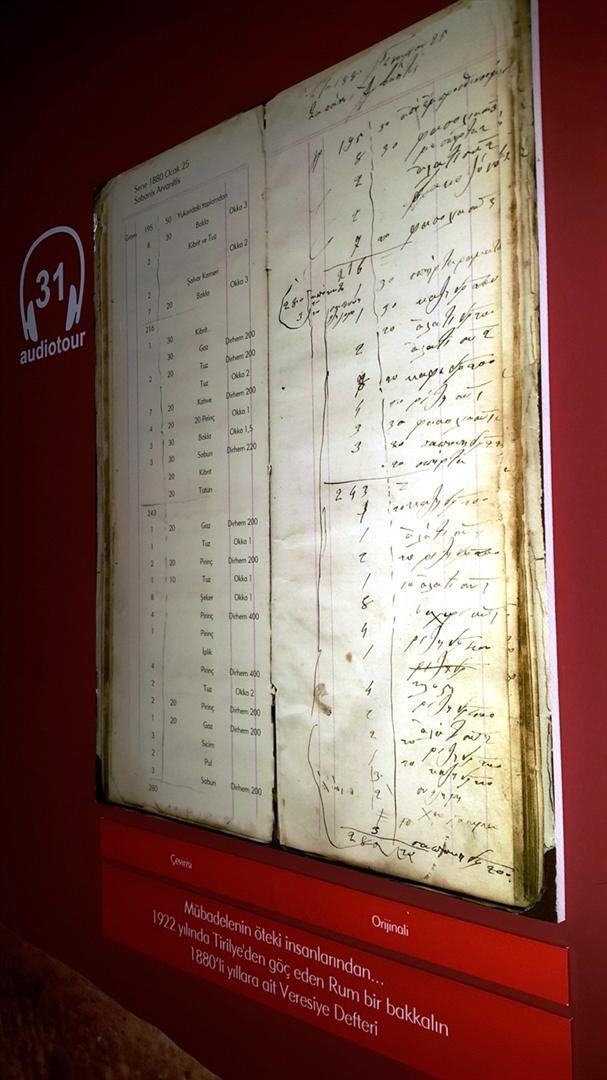
A 138-year-old ledger belonging to a Greek grocer sheds light on the conditions prevalent at the time in northwestern Turkey.
Currently on display at Turkey's Migration Museum in Bursa province, the account book -- held on by a Greek grocer who had a shop in the Trilye village of Mudanya -- dates back to the 1880s.
The grocer used the book to keep track of the money his customers owed to him, but had to immigrate to Thessaloniki after a population exchange between ethnic Turks in Greece and ethnic Greeks in Turkey following World War I.
"The book is an impressive document and exhibit that is a stark reminder of the conditions prevalent at the time," read a brochure published by the museum.
The museum said the book provides an extensive list of items that were consumed the most during those days, such as matches, gas, string, soap and beans.
According to the museum, "the poverty and destituteness of the time" is apparent in the lines of the ledger.
An enlarged copy of the account book and translations of it are also available at the museum.
Forced emigration of ethnic Turks and Greeks
Before WWI, a large number of Greeks lived in Anatolia. Under the Greek occupation of Bursa in 1920, bitter divisions erupted between the Greek, Armenian, and Muslim communities that had been living peacefully for centuries.
"The wire fence here is the most heartbreaking symbol of borders that are impossible to cross and journeys that are difficult to complete for migrants," the brochure said.
After the defeat of the Greek troops, over one million ethnic Greeks living in Bursa and Izmir emigrated to Greece.
In a separate treaty incorporated into the Lausanne Peace Treaty, it was agreed that a population exchange would take place between ethnic Turks in Greece and ethnic Greeks in Turkey.
Exceptions were the Greek Orthodox community in Istanbul and the Muslim community in Western Thrace.
Bursa was of special preference for emigrants. People arrived in Bursa from villages in Greece and even some Aegean islands.
